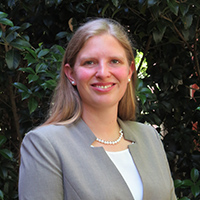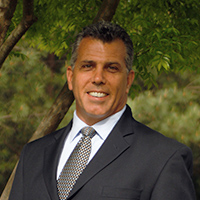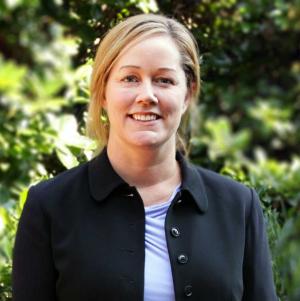The NC Clean Energy Technology Center (NCCETC)’s Clean Transportation program propels the development, awareness and use of alternative fuels and advanced transportation technologies. Our clean transportation program’s outreach and education initiatives include workshops, meetings, conferences and communication campaigns highlighting the benefits of using clean transportation technologies- from alternative fuel to sustainable fleet management.
Currently, the clean transportation team is hosting weekly webinars through the Sustainable Fleet Technology Webinar Series, a collaborative partnership with NAFA Fleet Management Association and The 100 Best Fleets, to share the best practices and information on the latest fleet technologies.
 The clean transportation team also provides technical assistance in the form of training and fleet assessments. Heather Brutz, Finance and Operations Manager for the clean transportation program, was on a team that conducted a quantitative analysis evaluating the potential impacts of alternative fuel vehicles on transportation revenue in North Carolina. “My analysis showed that the current electric vehicle fee covers the lost revenue from the gas tax that electric vehicles do not pay because they do not use gasoline,” Brutz said.
The clean transportation team also provides technical assistance in the form of training and fleet assessments. Heather Brutz, Finance and Operations Manager for the clean transportation program, was on a team that conducted a quantitative analysis evaluating the potential impacts of alternative fuel vehicles on transportation revenue in North Carolina. “My analysis showed that the current electric vehicle fee covers the lost revenue from the gas tax that electric vehicles do not pay because they do not use gasoline,” Brutz said.
 NCCETC’s staff helps to diversify fuel supplies, reduce emissions and support cleaner air and greater energy security. John Bonitz, a specialist on the clean transportation team, assists in administering federal funding through the Clean Fuel Advanced Technology (CFAT) project which focuses on reducing transportation-related emissions. The CFAT project is funded with federal Congestion Mitigation Air Quality funds provided by the NC Department of Transportation. Bonitz supports the CFAT project by alerting fleets when applications open, processing these applications and collecting quarterly reports.
NCCETC’s staff helps to diversify fuel supplies, reduce emissions and support cleaner air and greater energy security. John Bonitz, a specialist on the clean transportation team, assists in administering federal funding through the Clean Fuel Advanced Technology (CFAT) project which focuses on reducing transportation-related emissions. The CFAT project is funded with federal Congestion Mitigation Air Quality funds provided by the NC Department of Transportation. Bonitz supports the CFAT project by alerting fleets when applications open, processing these applications and collecting quarterly reports.
Bonitz is also a part of the first electric cooperative demonstration of a new electric-vehicle-to-grid (V2G) charger created by Fermata Energy. This electric vehicle (EV) charger does more than power an EV – it’s bi-directional, which means it can pull the power from the vehicle’s batteries back into the electric grid. Last year, Fermata Energy asked Roanoke Electric Cooperative in Ahoskie, North Carolina to help demonstrate this V2G charger using the co-op’s two leased Nissan Leaf EVs. “Working with Roanoke Electric Cooperative to document their demonstration of dollar values from a bi-directional charger has been, by far, the most rewarding project yet,” Bonitz said.
 New transportation technologies are always on the horizon and U.S. fleets are currently in a frenzy to electrify, according to Richard Sapienza, Director of the Clean Transportation program. So, the clean transportation team recently hired two new clean transportation specialists. “I welcome the expertise and assistance of our two new hires, Lisa Poger and Alrik Lunsford,” Sapienza said. “Both have significant and relevant industry experience and can hit the ground running.”
New transportation technologies are always on the horizon and U.S. fleets are currently in a frenzy to electrify, according to Richard Sapienza, Director of the Clean Transportation program. So, the clean transportation team recently hired two new clean transportation specialists. “I welcome the expertise and assistance of our two new hires, Lisa Poger and Alrik Lunsford,” Sapienza said. “Both have significant and relevant industry experience and can hit the ground running.”
Sapienza has more than 35 years of industry experience under his sleeve and strives to support public and private fleets as well as the public consumer, giving them the knowledge to make informed decisions. For 2021, Sapienza is looking forward to doing more public education through webinars, conferences and demonstration events. Sapienza explained, “The reach and impact that these events have across the industry makes me proud to be involved in this important effort.”
GET TO KNOW THE NEWEST MEMBERS OF THE TEAM
 Lisa Poger, Senior Clean Transportation Specialist
Lisa Poger, Senior Clean Transportation Specialist
Lisa Poger is an environmental scientist and has worked for regulated electric utility industries for 15 years. She has assisted in several programs centered around electric vehicles and their implementation through outreach and education efforts to advance transportation adoption across the state.
What kind of expertise are you bringing to/focusing on at the Center?
I bring a utility perspective to NCCETC for transportation electrification.
What experience in the clean energy industry have you previously had?
I have over a decade of experience in the utility and electric generation industry with a focus on renewables and demand response, identifying and creating new opportunities for cleaner energy solutions. Prior to joining NCCETC, I managed electric transportation projects and led the statewide electric vehicle collaborative, Plug-in NC, at Advanced Energy North Carolina. Plug-in NC brought together industry stakeholders to identify and address barriers affecting electric transportation market transformation.
 Alrik Lunsford, Clean Transportation Specialist
Alrik Lunsford, Clean Transportation Specialist
Alrik Lunsford is native to Durham, NC and received his bachelor’s degree in Visual Arts and Design from North Carolina Agricultural and Technical State University. He’s also an alum of North Carolina Central University, where he received a post graduate degree in Public Administration.
What kind of expertise are you bringing to/focusing on at the Center?
I am an experienced grant writer with an array of education and marketing strategies to foster both learning and partnerships. My expertise lies in design and product branding, attention to detail and the ability to foster relationships with other organizations.
What experience in the clean energy industry have you previously had?
Previously, I oversaw Clean Fuel Advanced Technologies grant activities while serving as an Education and Outreach partner to NCCETC. During this time I increased stakeholder awareness of clean energy practices through publications, facilitating training, workshops and grant writing.
I also co-facilitated Rural Planning Organization transportation meetings that determined transportation project funding for local counties. The information gleaned from these presentations helped guide local elected officials and technical staff on both high and low priority issues governed by the NC Department of Transportation statutes and policies.
